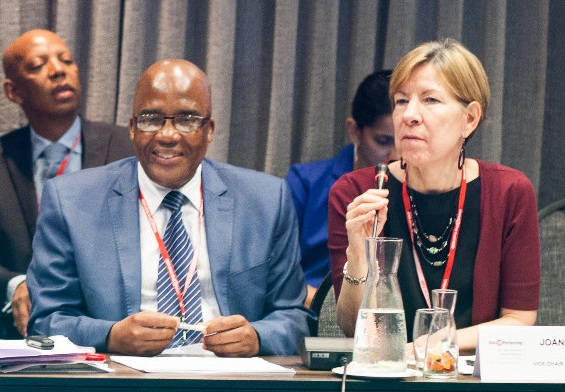
This World TB Day must turn a new page in the history of the fight against TB.
When the world first set out to eradicate smallpox 50 years ago, many felt it was not possible, and others thought the goal was too ambitious. Visionaries in the early days of the global AIDS response were also met with resistance when they suggested that AIDS anti-retroviral medicines could be provided to all who needed them. Today there are over 15 million people receiving AIDS treatment and smallpox has been eradicated.
We’ve seen what happens when the world comes together against an epidemic. Now with the opportunity before us to put an end to the world’s leading infectious killer – TB – we must respond with ambition and resources. The Global Plan to End TB 2016-2020 sets out the investment case needed to reach the goal to End TB by 2030, a target endorsed by Heads of State in the Sustainable Development Goals last September.
Unfortunately current funding levels for TB cover only half of what’s needed to put the full plan into action.
What the investment case would allow us to achieve reminds us how critical it is that we fill that gap: 45 million people prevented from getting sick with TB, 10 million lives saved and a $1.2 trillion economic return on investment. This represents one of the best investments the global community can make in both human and economic terms.
Countries already provide the majority of TB investment, and the majority of additional funds for scale-up and building health delivery systems. However, greater external support will be critical for ambitious action by countries and for advances in research and development that will yield new tools to transform the fight.
If the fight against TB continues to remain unambitious and underfunded, recent research points to widespread drug-resistance that could reverse decades of progress at the cost of millions of lives and trillions of dollars by 2050. Of the estimated 700,000 deaths per year caused by antimicrobial infections, MDR-TB is responsible for nearly one-third.
We congratulate the G7 Heads of State for issuing a stand-alone declaration on Antimicrobial Resistance (AMR) in June 2015, recognizing that AMR and TB belong at the top of the global political agenda. We urge the G20 Group of Countries to similarly prioritise AMR and TB when they meet in China this September.
As the Chair and Vice-Chair of the Stop TB Partnership Coordinating Board, we are committed to making the investment case to decision makers across the globe for increased domestic and international investments in TB.
Successful replenishment of the Global Fund to Fight AIDS, TB and Malaria this year will be essential for ending TB and for building effective, responsive health systems. TB is one of the biggest health burdens in Global Fund supported countries, and the Global Fund continues to be the single largest external funder of TB efforts. In order to ensure that the replenishment drive of the Global Fund is a success we call on Ministers of Finance and Health, this World TB Day, to heed the replenishment call of the Global Fund.
Many of history’s great successes in the fight against diseases have been characterized by momentous shifts in ambition and political will. For too long, the world has believed that ending TB is not possible, and that business as usual will suffice. This is no longer acceptable.
We are uniting activists, politicians, and people affected by TB around the world in solidarity in the call to End TB.
For far too long, TB was not on the radar of policymakers. Today, we have the largest parliamentary group ever created for a health issue, with parliamentarians from over 100 countries pledging to join the fight to end TB through the Global TB Caucus.
In the past, the TB community’s focus was on managing and controlling TB. Today we have expanded our ambition to ending TB. We have a globally endorsed strategy, and a roadmap to achieve this in the Stop TB Partnership’s Global Plan to End TB 2016-2020, with 90-(90)-90 targets to reach at least 90% of all people who need TB treatment, including 90% of people in key populations, and achieve 90% treatment success.
Our task together now is to convince the world to seize this opportunity and provide the political leadership and resources needed to tackle the world’s leading infectious killer. Let’s send this message loud and clear this World TB Day – we are united to end TB, and if we join together, we will succeed.
Dr. Aaron Motsoaledi
Chair of the Stop TB Partnership Board and Minister of Health, South Africa
Dr. Joanne Carter
Vice-Chair of the Stop TB Partnership Board and Executive Director, RESULTS
Source: Stop TB Partnership